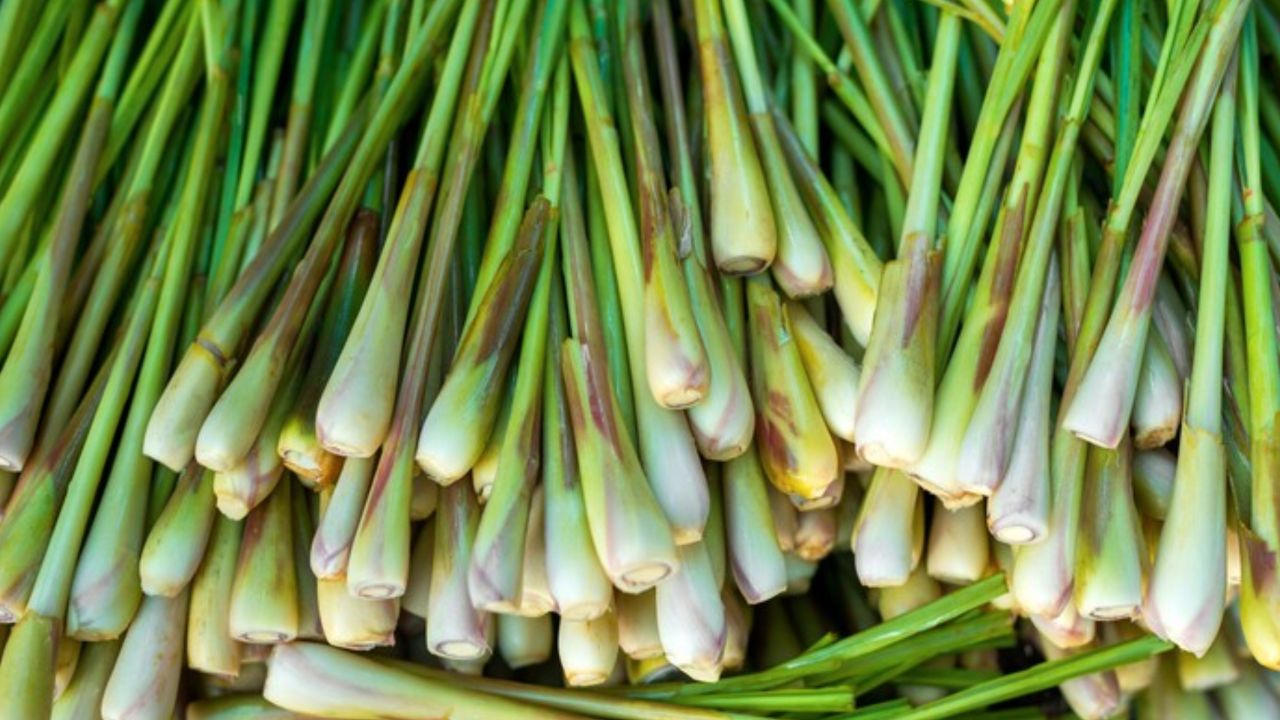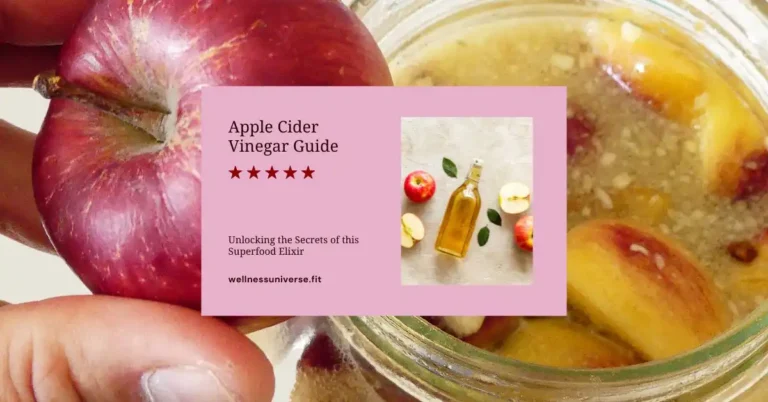Why Lemongrass Should Be Your Next Superfood: A Journey into Nature’s Emerald Elixir
Imagine a blade of grass, ordinary in its form, yet humming with the vibrant essence of a thousand sun-drenched mornings. It whispers tales of ancient remedies, of kitchens bustling with aromatic steam, and of an enduring power hidden within its unassuming stalks. This is not just any grass; this is lemongrass, Cymbopogon citratus, a botanical marvel poised to step out of the shadows of culinary obscurity and claim its rightful place as a global superfood. For too long, it has been merely a fragrant accent, a whisper in a curry, a refreshing note in a tea. But for the discerning, the knowledgeable, and those seeking nature’s profound wisdom, lemongrass is far more: it is an emerald elixir, a holistic powerhouse, and undeniably, your next superfood.
Our journey begins not in a laboratory, but in the verdant, sun-drenched landscapes of Southeast Asia, a region where lemongrass has been woven into the very fabric of life for millennia. From the bustling street food stalls of Bangkok to the tranquil villages of Kerala, its distinct lemony, slightly ginger-like aroma is as ubiquitous as the tropical humidity itself. It’s the soul of a fragrant Tom Yum soup, the backbone of a vibrant curry, and the secret ingredient in countless traditional medicines. Yet, its story transcends mere flavour; it is a narrative of resilience, therapeutic potency, and an intricate chemical symphony orchestrated by nature herself.
The Echoes of Ancient Wisdom: Lemongrass Through Time
The history of lemongrass is deeply rooted in traditional healing systems. Ayurvedic medicine, originating in India over 3,000 years ago, recognized its potent digestive and anti-inflammatory properties, prescribing it for fevers, infections, and stomach ailments. Similarly, Traditional Chinese Medicine (TCM) valued its ability to dispel dampness, warm the interior, and alleviate pain. Indigenous communities across Africa and South America, where various species of Cymbopogon also thrive, have long utilized it for its antimalarial, antipyretic, and sedative effects.
This wasn’t just folklore; it was observation, passed down through generations. People noticed that those who regularly consumed lemongrass seemed more robust, suffered less from common ailments, and possessed a certain vitality. They understood, without the aid of modern microscopes or biochemical analyses, that this fragrant grass was a gift, a natural pharmacy wrapped in a slender, green sheath. Its journey from a local staple to a global culinary and wellness ingredient speaks volumes about its undeniable efficacy and versatility. As global palates have expanded and the search for natural health solutions intensified, the ancient wisdom surrounding lemongrass has found a renewed resonance in the modern world.
Deconstructing the Emerald: The Botanical Blueprint and Its Bioactive Brilliance
To truly appreciate lemongrass as a superfood, we must delve beyond its aromatic surface and explore its intricate botanical and chemical composition. Cymbopogon citratus belongs to the Poaceae family, a vast and vital group of grasses. It thrives in tropical and subtropical climates, forming dense clumps of stiff, fibrous stalks that can reach up to two meters in height. The edible part, the lower, pale-green bulb and tender inner stalks, are where the magic truly resides.
The true brilliance of lemongrass lies in its complex cocktail of bioactive compounds. While its signature lemony scent immediately suggests the presence of citral, this compound, in fact, encompasses a pair of isomeric aldehydes: geranial and neral. Citral is the undisputed star, accounting for 65-85% of the essential oil composition, and it is largely responsible for many of lemongrass’s profound health benefits. But the supporting cast is equally impressive, working synergistically to create a powerful therapeutic profile:
- Limonene: A monoterpene also found in citrus peels, known for its antioxidant and anti-inflammatory properties, and potential anti-cancer effects.
- Geraniol: Another monoterpene alcohol, contributing to the rose-like aroma and possessing antimicrobial and anti-inflammatory actions.
- Myrcene: A potent analgesic and anti-inflammatory agent, also found in hops and cannabis.
- Farnesol: A sesquiterpene alcohol with antimicrobial and anti-cancer properties.
- Flavonoids: A diverse group of plant pigments with powerful antioxidant, anti-inflammatory, and immune-modulating effects. Key flavonoids in lemongrass include luteolin, quercetin, kaempferol, and apigenin.
- Phenolic Compounds: Such as chlorogenic acid and gallic acid, which are potent antioxidants and contribute to its overall protective effects.
- Vitamins: A modest but significant source of Vitamin C, Vitamin A (beta-carotene), and several B-vitamins (folate, B6, thiamine, riboflavin, niacin), crucial for energy metabolism and overall health.
- Minerals: Rich in essential minerals like potassium, magnesium, calcium, iron, manganese, and zinc, vital for nerve function, bone health, blood formation, and enzymatic activities.
This intricate blend of terpenes, flavonoids, phenolic acids, vitamins, and minerals doesn’t just make lemongrass smell good; it makes it a pharmacological marvel, capable of influencing numerous physiological pathways within the human body. This deep understanding of its chemistry is what elevates lemongrass from a mere herb to a bona fide superfood.
The Superfood Symphony: Unveiling Lemongrass’s Holistic Benefits
Now, let’s explore the profound ways in which this emerald elixir can transform your health, one stalk, one cup, one meal at a time.
1. The Antioxidant Powerhouse: Shielding Your Cells
Our modern lives expose us to a barrage of free radicals – unstable molecules that cause oxidative stress, damaging cells, accelerating aging, and contributing to chronic diseases like cancer, heart disease, and neurodegenerative disorders. Lemongrass is a formidable weapon against this internal assault. Its rich concentration of flavonoids, phenolic compounds, and vitamins C and A acts as a powerful antioxidant brigade. These compounds diligently scavenge free radicals, neutralizing them before they can inflict damage. Citral, in particular, has been shown to protect cellular membranes and DNA from oxidative damage, safeguarding your body at its most fundamental level. Regular consumption of lemongrass effectively strengthens your body’s natural defense system, promoting longevity and vitality.
2. The Anti-inflammatory Ally: Soothing the Internal Fire
Chronic inflammation is now recognized as a root cause of many modern diseases, from arthritis and autoimmune conditions to heart disease and certain cancers. Lemongrass offers a natural, potent anti-inflammatory response. Compounds like citral, geraniol, and various flavonoids work by inhibiting the production of pro-inflammatory cytokines and enzymes (like COX-2, the target of many NSAIDs). This action helps to reduce systemic inflammation, alleviating pain, swelling, and discomfort associated with inflammatory conditions. Whether it’s the aches of arthritis, the stiffness of overworked muscles, or the general malaise of chronic inflammation, lemongrass can provide a gentle yet effective soothing balm.
3. The Digestive Dynamo: Nurturing Your Gut Health
For centuries, lemongrass has been revered as a digestive aid, and modern science is catching up to this ancient wisdom. It possesses carminative properties, meaning it helps to relieve gas and bloating by promoting the expulsion of gas from the digestive tract. It also stimulates the production of digestive enzymes, facilitating more efficient breakdown and absorption of nutrients. Furthermore, its potent antimicrobial properties, particularly due to citral, can help to combat harmful gut bacteria, including Helicobacter pylori (a common cause of stomach ulcers) and various fungal infections, while promoting a healthier balance of beneficial gut flora. A healthy gut is the cornerstone of overall well-being, and lemongrass is an excellent ally in maintaining this crucial balance, ensuring smoother digestion and alleviating common gastrointestinal discomforts.
4. The Immune System Support: Fortifying Your Defenses
A robust immune system is your body’s primary shield against pathogens. Lemongrass contributes significantly to this defense. Its Vitamin C content is a known immune booster, crucial for the production of white blood cells. Beyond that, the broad-spectrum antimicrobial and antifungal properties of compounds like citral, geraniol, and farnesol directly combat a range of bacteria, viruses, and fungi. Regular consumption can help to ward off common colds, flu, and other infections, keeping you healthier and more resilient, especially during seasonal changes or times of increased exposure to pathogens.
5. The Potential Anti-Cancer Properties: A Glimmer of Hope
Perhaps one of the most exciting and actively researched areas of lemongrass’s potential lies in its anti-cancer capabilities. Numerous in vitro (test tube) and in vivo (animal) studies have shown that citral, the primary compound in lemongrass, exhibits remarkable anti-proliferative and pro-apoptotic effects on various cancer cell lines. This means it can inhibit the growth and spread of cancer cells and induce programmed cell death (apoptosis) in them, without harming healthy cells. Research has explored its potential against breast, liver, prostate, colon, and leukemia cells. While these findings are largely preliminary and require extensive human trials, they offer a compelling glimpse into lemongrass’s promise as a complementary agent in cancer prevention and treatment, highlighting its profound impact at a cellular level.
6. Cardiovascular Guardian: Nurturing Your Heart
Heart disease remains a leading global health concern. Lemongrass offers several benefits for cardiovascular health. Its antioxidant properties protect blood vessels from oxidative damage and plaque formation, a key step in atherosclerosis. Studies suggest it can help lower levels of LDL ("bad") cholesterol and triglycerides, while potentially increasing HDL ("good") cholesterol. Furthermore, its potassium content is beneficial for maintaining healthy blood pressure, as potassium counteracts the effects of sodium, promoting vasodilation and reducing strain on the heart. By supporting healthy cholesterol levels and blood pressure, lemongrass contributes to a stronger, healthier heart and reduced risk of cardiovascular events.
7. Blood Sugar Regulation: Aiding Metabolic Balance
For individuals managing diabetes or pre-diabetes, blood sugar control is paramount. Emerging research indicates that lemongrass may play a supportive role in this area. Some studies suggest it can help improve insulin sensitivity, allowing cells to more effectively absorb glucose from the bloodstream. It may also help reduce glucose absorption from the gut. While not a substitute for prescribed medication, incorporating lemongrass into the diet may offer a natural adjunctive therapy to help stabilize blood sugar levels, contributing to better metabolic health and potentially reducing the risk of complications associated with hyperglycemia.
8. Diuretic and Detoxifying Effects: Cleansing from Within
Lemongrass acts as a natural diuretic, promoting increased urination. This effect is beneficial for several reasons: it helps flush out toxins and waste products from the body, supports kidney function, and can alleviate water retention and bloating. By aiding the body’s natural detoxification pathways, lemongrass helps maintain a cleaner internal environment, contributing to improved energy levels and overall well-being. It’s like a gentle internal cleanse, helping your body to naturally purify itself.
9. Pain Relief and Muscle Relaxation: A Natural Analgesic
From headaches and muscle aches to menstrual cramps, pain is a universal experience. Lemongrass, with its anti-inflammatory and analgesic properties, offers a natural remedy. Myrcene, a compound found in lemongrass, is a known pain reliever. Its antispasmodic effects can help relax tense muscles, alleviating cramps and spasms. Whether consumed as a tea or applied topically (diluted essential oil), lemongrass can provide significant relief from various forms of discomfort, offering a gentle alternative to synthetic pain relievers.
10. Anxiety and Stress Reduction: A Balm for the Mind
The soothing aroma of lemongrass is not just pleasant; it has profound effects on the nervous system. The essential oil, rich in citral and myrcene, is widely used in aromatherapy for its calming and anxiolytic (anxiety-reducing) properties. Diffusing lemongrass essential oil or sipping a warm cup of lemongrass tea can help alleviate stress, reduce anxiety, and promote a sense of calm and relaxation. It can also contribute to improved sleep quality, making it a valuable tool in managing the mental and emotional toll of modern life. This subtle yet powerful effect on mood and well-being adds another layer to its superfood status.
11. Skin and Hair Health: Radiance from the Inside Out
The benefits of lemongrass extend to external beauty as well. Its antioxidant properties protect skin cells from environmental damage and premature aging, contributing to a youthful glow. Its antimicrobial and astringent qualities make it beneficial for combating acne and other skin infections, helping to clarify the complexion. For hair, lemongrass can strengthen follicles, reduce oiliness, and promote a healthy scalp environment, leading to lustrous, vibrant hair. Many natural cosmetic products now incorporate lemongrass for these very reasons.
12. Weight Management Support: A Gentle Metabolic Boost
While not a magic bullet, lemongrass can be a supportive addition to a weight management regimen. Its diuretic properties can help reduce water weight and bloating. Some proponents suggest it can mildly boost metabolism, aiding in calorie burning. Furthermore, its ability to aid digestion and detoxification contributes to overall metabolic efficiency, making it a helpful, albeit subtle, ally in maintaining a healthy weight.
Embracing the Emerald: How to Incorporate Lemongrass into Your Life
The beauty of lemongrass lies not only in its potent benefits but also in its incredible versatility. Integrating this superfood into your daily routine is both delicious and straightforward.
Culinary Delights:
- Soups and Curries: The most iconic use. Finely slice the tender inner parts of the stalk or bruise whole stalks to release their aroma, then add to Thai curries (like green or red curry), Tom Yum, Tom Kha Gai, or Vietnamese pho.
- Marinades and Rubs: The bright, citrusy notes of finely minced lemongrass elevate marinades for chicken, fish, pork, or tofu. It tenderizes and infuses flavor beautifully.
- Stir-fries: Add a refreshing zest to any stir-fry by tossing in some thinly sliced lemongrass with your vegetables and protein.
- Infused Oils and Vinegars: Gently simmer lemongrass stalks in oil or steep them in vinegar to create aromatic bases for cooking or dressings.
- Salads: For an unexpected twist, finely mince the tender white part of the stalk and add it to vibrant salads for a crunchy, aromatic burst.
- Desserts: Believe it or not, lemongrass can be a delightful addition to sweet treats. Infuse it into simple syrups for sorbets, panna cotta, or custards, or use it to flavor fruit salads.
Beverage Bliss:
- Lemongrass Tea: The simplest and most popular way to enjoy its benefits. Steep fresh or dried lemongrass stalks (bruised or chopped) in hot water for 5-10 minutes. Enjoy plain or with a squeeze of lime and a touch of honey. It’s incredibly soothing, especially after a meal or before bed.
- Infused Water: Add slices of lemongrass to your water pitcher with cucumber, mint, or ginger for a refreshing and detoxifying drink.
- Smoothies: A small piece of fresh lemongrass can add an exotic, healthy kick to your morning smoothie.
- Cocktails/Mocktails: Muddle lemongrass with other fresh ingredients for unique and vibrant beverages.
Beyond the Kitchen:
- Essential Oil: Lemongrass essential oil is popular for aromatherapy. Diffuse it to create a calming, uplifting atmosphere or dilute it with a carrier oil (like jojoba or coconut) for topical application on sore muscles or temples (always patch test first). It’s also a natural insect repellent. Always ensure essential oils are therapeutic grade and used with caution, never ingested without professional guidance.
Tips for Selection, Storage, and Preparation:
- Selection: Look for firm, pale-green stalks with a fragrant aroma. Avoid stalks that are dry, cracked, or discolored.
- Storage: Store fresh lemongrass in the refrigerator, wrapped in a damp paper towel and then plastic wrap, for up to 2-3 weeks. It can also be frozen, whole or chopped, for several months.
- Preparation: To prepare, trim off the very top leafy part and the root end. Remove any tough outer layers until you reach the paler, more tender inner stalk. For recipes that call for bruising, use the back of a knife or a rolling pin. For mincing, slice thinly.
Responsible Enjoyment: Considerations and Cautions
While lemongrass is overwhelmingly beneficial, a knowledgeable audience understands that even natural powerhouses require respectful consideration.
- Pregnancy and Breastfeeding: While culinary amounts are generally considered safe, high therapeutic doses (e.g., concentrated teas or essential oils) should be avoided or discussed with a healthcare provider during pregnancy and breastfeeding, due to potential effects on uterine contractions or milk supply.
- Drug Interactions: Individuals on certain medications, particularly blood thinners (anticoagulants) or blood sugar-lowering drugs, should consult their doctor. Lemongrass might theoretically amplify these effects.
- Allergies: Though rare, some individuals may experience allergic reactions, particularly skin irritation from topical application of the essential oil. Always perform a patch test.
- Moderation: Like any potent herb, enjoy lemongrass in moderation as part of a balanced diet.
- Quality: Source fresh, organic lemongrass when possible to avoid pesticides and ensure maximum potency.
The Emerald Path Forward: Embracing Your Next Superfood
Our journey through the vibrant world of lemongrass reveals a narrative far richer than mere flavor. It is a story of ancient wisdom validated by modern science, of a humble grass quietly offering a spectrum of profound health benefits. From its robust antioxidant and anti-inflammatory prowess to its potential in gut health, immunity, and even cellular protection, lemongrass stands as a testament to nature’s intricate pharmacy.
As we continue to seek holistic wellness solutions and embrace ingredients that nourish both body and soul, lemongrass emerges not just as an exotic ingredient, but as an essential ally. It invites us to slow down, to savor its invigorating aroma, and to incorporate its emerald magic into our daily lives. So, the next time you encounter this slender, fragrant stalk, remember its story. Remember its power. And confidently welcome lemongrass as your next, indispensable superfood. Your body, your mind, and your palate will thank you for embarking on this truly enriching journey.







